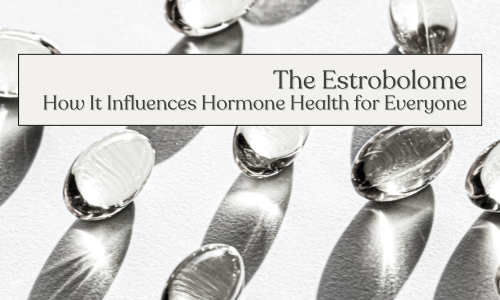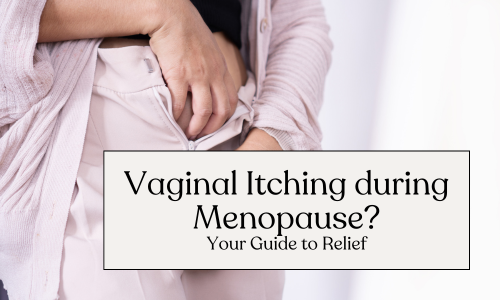Navigating Menopause with Confidence – Personalized Menopause Treatment in Northern Virginia
Let’s talk about menopause. Menopause is not the end of anything. It is a powerful new chapter. But, for many of us, this transition does not come quietly or cooly. Suddenly, you might find yourself waking up drenched in sweat, feeling a little fuzzy-headed, or noticing your patience is wearing thin. It can feel like your body is speaking a new language you do not understand. You are not alone in feeling this way. At DiscovHER Health in Alexandria, Virginia, we specialize in providing personalized menopause treatment in Northern Virginia for women who seek comprehensive and individualized care. Our approach is based on the HER Method—Healthcare, Education, and Resources—because we believe every woman deserves more than a one-size-fits-all plan. We prioritize a deep understanding of your unique story to create a treatment path that supports your entire well-being, not just your symptoms. What Menopause Really Feels Like Menopause affects every system of the body, including hormones, metabolism, skin, mood, and sleep. You are not just imagining the changes. They are real. Unfortunately, women are often told to “just deal with it” or are given a pill without a comprehensive strategy. We believe in listening first and taking the time to understand your individual experience before creating a personalized path for menopause treatment in Northern Virginia. Frequently Asked Questions about Menopause Treatment in Northern Virginia What is hormone testing? Though hormone testing is not required, many women find the objective data helpful. We go beyond the standard labs to look at your hormones in depth. We analyze your estrogen, progesterone, and testosterone levels, while also testing for issues with thyroid and anemia. What is bioidentical hormone therapy, and how does it help? We utilize bioidentical hormone therapy (BHRT), which uses hormones that are chemically identical to those your body produces naturally. This therapy is not about reversing hormones. Rather, it is about helping you feel more energized, stable, and in sync with your body once again. What makes DiscovHER Health’s approach to menopause different? DiscovHER Health offers evidence-based care that integrates the best of conventional and functional medicine. We provide comprehensive hormone testing, nutritional and metabolic support, and mood, sleep, and cognitive function support. Our approach focuses on the entire individual rather than just on individual symptoms. What are some common symptoms of menopause that your clinic addresses? Hormone changes can affect mental clarity, emotional balance, and sleep quality. We address the whole experience, not just the stereotypes. We walk patients through menopause symptoms like night sweats, brain fog, fatigue, mood swings, weight gain, and changes in skin and hair. Our personalized treatment plans target your specific symptoms and help restore balance. How do I address weight gain during menopause? Metabolism slows during menopause. But with the right guidance, we help patients manage weight, improve energy, and support bone and heart health. How can I get started with menopause treatment in Northern Virginia at DiscovHER Health? You can book a consultation with us to begin your journey toward balanced hormones and renewed confidence. We offer both in-person appointments at our Alexandria, Virginia location and virtual visits for patients throughout the DMV area. Why Women Choose DiscovHER Health for Menopause Treatment in Northern Virginia We are partners in your menopause treatment in Northern Virginia. Our practice is for women who desire more from their healthcare. We focus on more attention, more answers, and more alignment with your personal goals. Our menopause specialists in Northern Virgnia understand the challenges faced by women who are busy professionals balancing work and wellness, mothers who are finally making time for themselves, and individuals navigating changes in intimacy. Let’s change the narrative for women who are tired of being dismissed, rushed, or told that their symptoms are “just their age.” We see you, we hear you, and we are ready to help you. Ready to Feel Like Yourself Again? If you have been searching for menopause treatment in Northern Virginia that centers you—your story, your symptoms, and your goals—it is time to discover DiscovHER Health. Book a consultation today and take the first step toward balanced hormones and renewed confidence. You can visit us in Alexandria, Virginia, or schedule a virtual visit from anywhere in the DMV. Our dedicated team is ready to support you on your journey.










